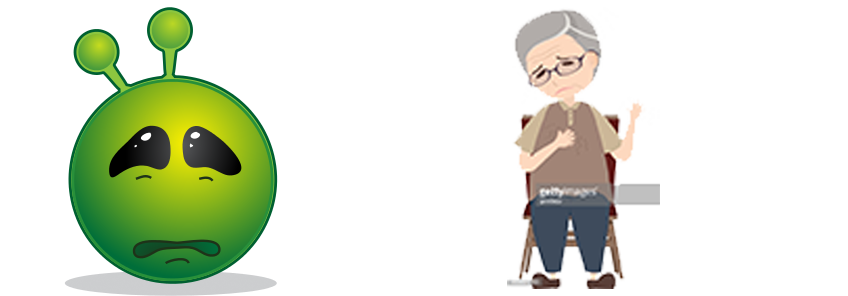Depression

- Female sex: women have higher chance of having depression and also the morbidity associated with them. Pregnancy and postnatal period also makes them vulnerable.
- Past history of depression
- Family history
- Physical problems that cause pain or disability
- Mental problems like dementia, anxiety, eating disorders
- Trauma during childhood or adulthood
- Environmental factors like stress, overwork, relationship problems, substance abuse etc
- Impaired social supports
- Caregiver burden
- Loneliness
- Bereavement
- Negative life events
- Feeling sad, hopeless, guilty, worthless or crying for no reason
- Loss of interest or pleasure in things you used to enjoy
- Eating more or less than usual
- Feeling tired all the time
- Change in weight (losing or gaining)
- Sleeping too much or difficulty sleeping
- Thinking about suicide or death, attempt to suicide
- Getting angry, irritated, or frustrate even in small matters
- Aches and pain don’t get better with medicine
- Trouble paying attention, concentration, thinking, and making decision
- He will ask you in detail about your symptoms and history of other risk factors. He will perform your mental status examination digging more into your delusions, hallucinations, suicidal ideas and also figure out to what extent these have affected your daily life.
- He will perform other tests to rule out other organic causes of depression like thyroid function test, drug screening, imaging like CT Scan, MRI etc
- He will explore further more into your cultural aspects, functional and social difficulties. He will do this by involving your family member or caretakers if required.
- Then he will diagnose depression as mild, moderate or severe based on the assessment done and this will determine what level of treatment to initiate.
- People with moderate or severe depression have a good chance of improving within a few weeks of starting an antidepressant.
- Co-morbid conditions like anxiety, eating disorders are treated only after treatment of depression.
- Other supportive treatment modalities may include behavior therapy, interpersonal therapy, couple therapy etc.
- Electroconvulsive Therapy is done if severe depression is not improved with other therapies.
- Stay in touch with your family and friends. Don’t keep yourself apart.
- Keep yourself engaged on the activities you feel better.
- Don’t blame yourself or don’t let the negative things to win.
- Get enough sleep.
- Eat balance diet food and exercise to make you feel better.
- Don’t be discouraged. Encourage yourself. You will get over from the depression. Be patient. It takes time to lift you from depression.
Depression is a condition where people persistently feel down or sad. Depression impacts on how people feel, think, and behave; as a result it affects your normal day-to-day activities. Hence if severe enough, it can be very distressing. Depression can be major or minor. Usually you are diagnosed with depression if you are having major depression.
Depression is fairly common affecting every five in hundred people every year. Depression is more common in women but it can happen to anybody at any age. It is a serious illness which poses a great burden in terms of treatment cost, effect on family and loss of productivity. Thus it needs to be treated on time.
Causes
The risk factors for depression could be:
Symptoms
Symptoms of depression can be different in different people. Some common symptoms are:
It can also cause people to have a variety of emotional and physical problems. Their feelings do not go away. They don’t have any control over their feelings. People suffering from depression may even think that the life isn’t worth living.
Diagnosis
The doctor will fully assess you before coming up with a diagnosis:
Treatment
Depression is treated with medicine, counselling or both. Doctor can tell you what treatment plan you need after you talk to the doctor about your symptoms. Treatments are based on your depression level. You may hesitate seeing a doctor, but don’t wait. The sooner you see a doctor, the sooner you may start feeling better.
Prevention
There are many things you can do to prevent and also to help you get over through depression:
We can also help our loved ones lifting from depression by supporting, understanding, encouraging and listening.



Send us your feedback on this article